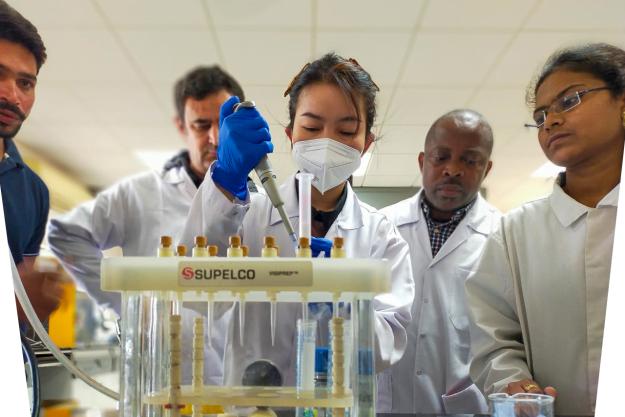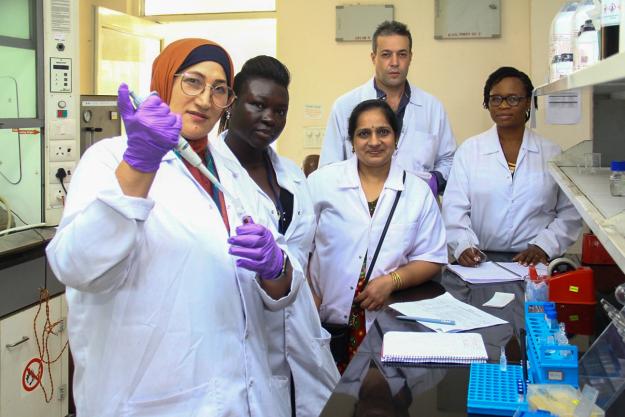
THE HAGUE, Netherlands—21 December 2022—The Organisation for the Prohibition of Chemical Weapons (OPCW) and the Indian Institute of Chemical Technology (IICT) organised an advanced skills training course for analytical chemists and laboratory specialists from OPCW Member States with economies that are developing or in transition, which was held in Hyderabad, India from 5 to 16 December 2022.
The two-week training provided chemistry professionals with the needed theoretical knowledge and practical skills on the techniques to analyse chemicals subject to the Chemical Weapons Convention. In particular, the participants received insights into the techniques, such as gas chromatography (GC) and gas chromatography-mass spectrometry (GC-MS). The training also covered methods for sample preparation and derivatisation.
In her opening statement, the OPCW Deputy Director-General, Ambassador Odette Melono, underscored that “the Secretariat prioritises capacity building for analysing chemicals covered by the Convention’s verification regime to chemists from developing countries and economies in transition.” She continued to add: “Enhancing this kind of capacity at the national level is a key component of our efforts to promote scientific and economic development and the peaceful uses of chemistry.” Joining the Deputy Director-General at the inauguration were Chairman of the Indian National Authority for the Chemical Weapons Convention, M. Neel Kamal Darbari, and the Director-in-Charge, IICT, Dr B. Jagdeesh.
The training was attended by 18 participants from 15 Member States: Algeria, Botswana, Brazil, Burkina Faso, Cameroon, Iraq, Malawi, Malaysia, Morocco, Namibia, Nigeria, Seychelles, Syrian Arab Republic, Thailand, and Uganda.

Background
OPCW analytical development courses assist chemists to acquire practical experience in the analysis of chemicals subject to the CWC. The objectives of these courses are to: equip specialists with the skills to analyse chemicals subject to the CWC; enhance the capacities of industry, academia, and laboratories to implement the CWC at a national level; disseminate best practices in chemical analysis; and broaden the global pool of qualified chemistry professionals.
Article XI of the CWC, Economic and Technological Development, provides international cooperation for the economic and technological development of States Parties.
As the implementing body for the Chemical Weapons Convention, the OPCW, with its 193 Member States, oversees the global endeavour to permanently eliminate chemical weapons. Since the Convention’s entry into force in 1997, it is the most successful disarmament treaty eliminating an entire class of weapons of mass destruction.
Over 99% of all declared chemical weapon stockpiles have been destroyed under OPCW verification. For its extensive efforts in eliminating chemical weapons, the OPCW received the 2013 Nobel Peace Prize.
